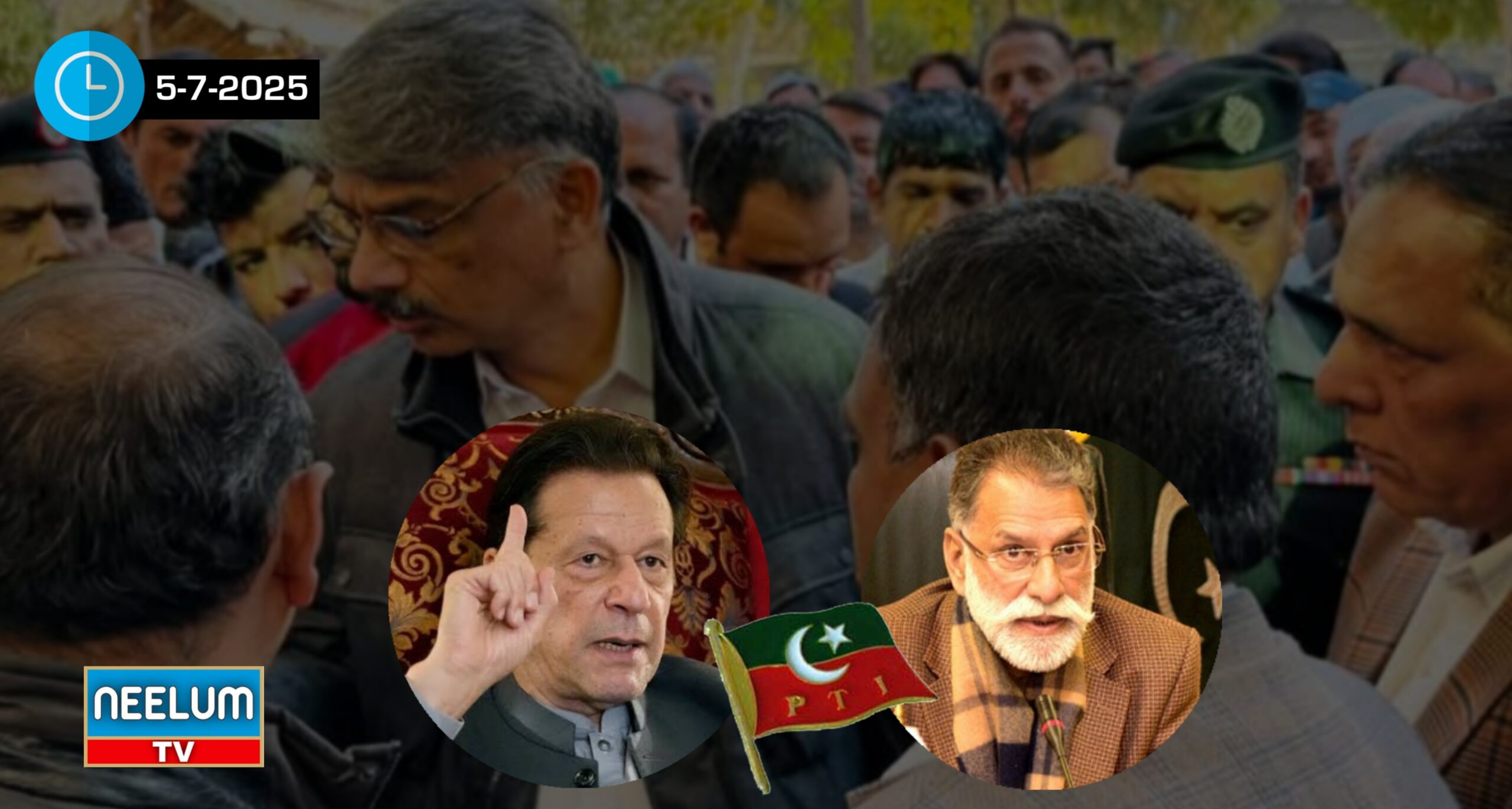Muzaffarabad (Neelum News) — Pakistan Tehreek-e-Insaf (PTI) Azad Jammu & Kashmir has expelled Prime Minister Chaudhry Anwar-ul-Haq and 20 other members of the Legislative Assembly over defection, ideological betrayal, and rebellion against party leadership.
According to party sources, the move was made under the direction of PTI’s founding chairman Imran Khan and was executed by PTI AJK President Sardar Abdul Qayyum Niazi. He stated that those who betrayed the ideology of Imran Khan and joined hands with the Pakistan Democratic Movement (PDM) despite winning on PTI’s mandate, have been formally ousted from the party.
The PTI spokesperson accused the expelled members of hijacking the public mandate, conspiring against the party, and putting personal interests above national and party loyalty. The spokesperson further demanded that these members should now resign from their assembly seats in a display of moral courage.
The expelled members include:
1. Chaudhry Anwar-ul-Haq – Prime Minister
2. Sardar Muhammad Hussain – Minister for Population Welfare
3. Sardar Mir Akbar – Minister for Agriculture, Irrigation & Environment
4. Diwan Ali Chughtai – Minister for Elementary & Secondary Education
5. Chaudhry Arshad Hussain – Minister for Electricity
6. Chaudhry Rasheed – Minister for Power Development Organization
7. Abdul Majid Khan – Minister for Finance
8. Azhar Sadiq – Minister for Communications & Public Works
9. Nisar Ansar – Minister for Public Health
10. Chaudhry Ikhlaq – Minister for Revenue & Custodian
11. Akmal Sargala – Minister for Forests
12. Zafar Iqbal Malik – Minister for Higher Education
13. Faheem Rabbani – Minister for Archaeology & Tourism
14. Yasir Sultan – Minister for Physical Planning & Housing
15. Javed Butt – Minister for Transport
16. Asim Butt – Minister for Sports, Youth & Culture
17. Kausar Tasdeeq Gilani
18. Begum Imtiaz Naseem
19. Begum Shahida Saghir Chughtai
20. Ali Shan Soni
21. Mazhar Saeed
This development has triggered political tremors across Azad Kashmir and is expected to have long-term implications for the region’s political dynamics.


